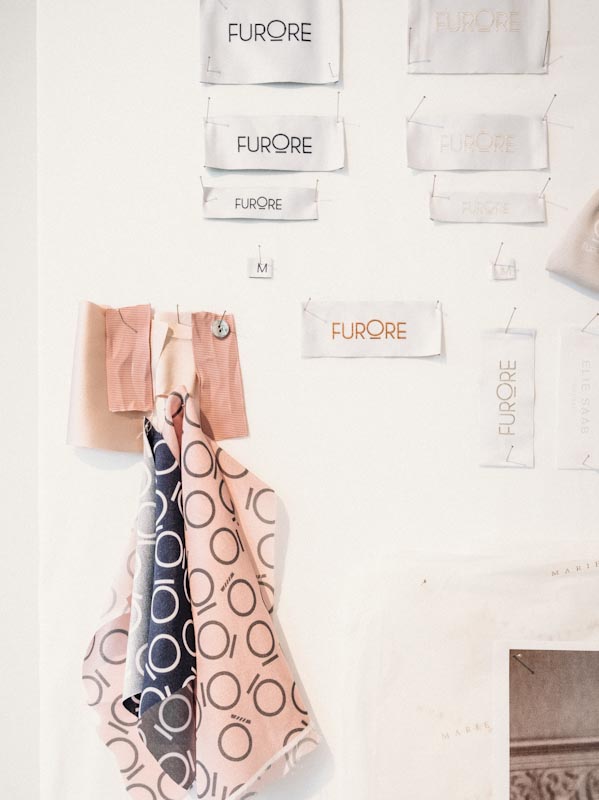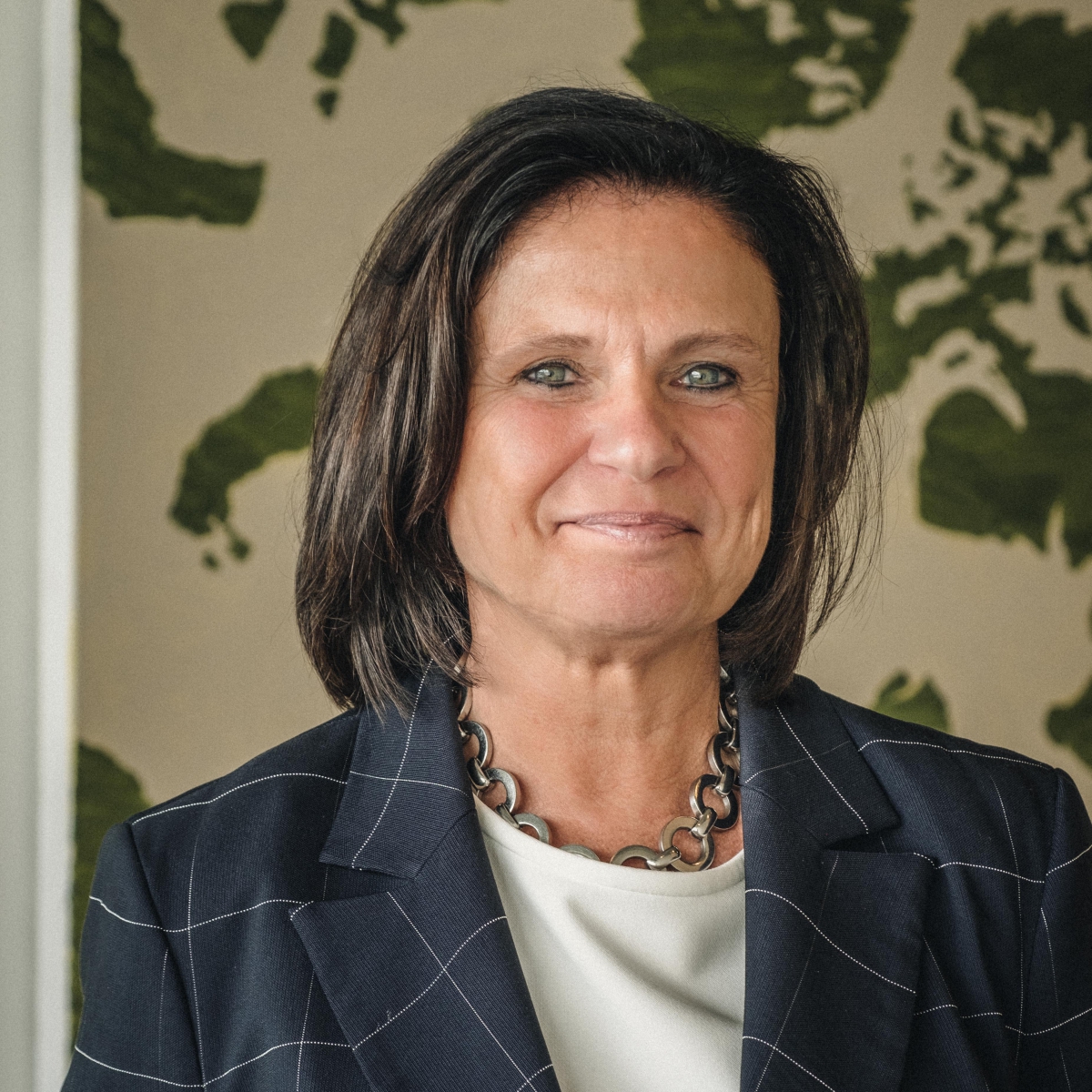FFDI (Furore)
Who is FFDI...
Does Flanders Fashion Design International (FFDI) not immediately ring a bell? Then you’ll surely recognise one of the four brands the company has under its wings: Julia June, Her. (formerly Giovane), Amania Mo and Furore. Combining the necessary knowhow with a huge passion for the business, FFDI has been leaving its mark on the Belgian fashion landscape for more than fifty years now. Sustainability has always had its place in the company, albeit implicitly, as team consistently calls for ‘quality over quantity’. FFDI has been maintaining close relations with all stakeholders since day one. Their way of working revolves around long-term bonds with partners, turning the search for sustainable alternatives into a shared ambition.
With the launch of slow brand Furore in September 2019, FFDI steps up its sustainability efforts, and the company plans on expanding that approach to its other brands as well. Through their extensive network of multi-brand stores and eleven own brand stores, Flanders Fashion Design International encourages fashion enthusiasts to invest in sustainability, in whatever way they choose. FFDI does not hesitate to question common fashion practices – including its own.

![]()
Resources
High-quality materials translated to today’s world, 80% of which are produced in Europe
FFDI keeps a close eye on its partners and consistently opts for suppliers who have already taken steps towards sustainability in their production process. This applies to both the resources themselves and to how they are made.
The team studies up on the developments in sustainable materials, too, like recycled polyester, organic cotton, Tencel®, bamboo and others. They actively ask for these options when selecting fabrics and scan the market for alternatives. When it comes to fabric production, for instance, FFDI looks into the possibility of printing with water-based inks.
In addition, to reduce transport emissions, the company strives for European sourcing. Today, they already get 80% of their resources and materials from European suppliers.
As far as Furore is concerned, the focus is on sustainable, high-quality and timeless resources that can have a long life.
![]()
Design
Furore transcends the seasons
Sustainable design takes center stage for Furore. This means that the brand turns to quality materials that transcend the seasons, stepping up to the challenges of climate change as well as steering clear from fast fashion. You will find little ‘summer’ or ‘winter’ clothes on Furore’s shelves; the collection consists of 70% seasonless articles. Yet, despite their timeless design, the items do tune in to the fashion spirit of the times.
![]()
Production
90% European production and own Code of Conduct
90% of the FFDI production takes place in Europe. Some of these European clothing companies are even in Belgian hands. FFDI visits these companies several times a year and is keen on establishing long-term relationships with their owners and employees. Flanders Fashion Design International developed its own Code of Conduct that all suppliers will have to sign.
Working sustainably is in the company’s DNA, and making this official is a logical next step. FFDI wants to add a chapter on Corporate Social Responsibility to its production guidelines and draw up a Health & Security checklist for factory audits. FFDI is planning on auditing its most important suppliers in the near future, while it chooses new suppliers with the help of a specific questionnaire or checklist.
![]()
Retail
Clothes hangers from recycled material for all transport by 2020
FFDI tries to reduce its plastic consumption by putting several items into one garment cover bag and by bringing the amount of brochures and folders in line with the demand from B2B and end consumers. FFDI no longer sends out folders or catalogues either. In addition, it takes a critical look at all of its window dressing material, trying to reuse it creatively at events and/or in the showrooms.
FFDI would like to go the extra mile for a sustainable retail business. On the one hand, the company wants to use only carrier bags, hang tags, brochures and POS material (the little of it that they have) made from FSC® certified paper and cardboard, and on the other, to set up a take-back system for its clothes hangers. 2020 will mark FFDI’s shift to sustainable clothes hangers made from WPC (wood plastic composites) for the transport of its four brands.
![]()
Consumption
Informing end customers about, and getting them involved in, the sustainability story
FFDI wants to steer clear from giveaways with a high disposability factor and replace them with more useful and more sustainable gifts like brochures with washing instructions for the end consumer. The company attaches a lot of importance to informing their customers on how to treat their items right. But making the end consumers see the sustainability story as self-evident and adjust their behavior accordingly remains a challenge. After all, FFDI knows it has to get its customers on board if it wants to spare the planet and future proof its work methods. That’s why it will encourage its B2B customers to tell end consumers more about their options for sustainable clothing maintenance. By inspiring customers to think green, FFDI hopes to make them feel involved and to make them see that everyone can be part of the solution.
![]()
End of life
The challenge: giving clothing a second life
FFDI’s youngest brand, Furore is all about timeless design, which translates into items that can be worn in any season. Thus, Furore provides a sustainable answer to fast fashion. Given that quality is so high on the agenda, Furore items can easily handle a second life. In fact, FFDI is exploring this option, not just for Furore but for its other brands as well.
The company wants to teach its end customers how to take good care of their clothes and to make them consider the possibility of passing items on to their daughters or sisters.
In addition, each season Julie June, Amania Mo and Her. aim for zero overstock. When their retail stores do have surpluses, the company gives them a second chance in the ‘More brands for less’ outlet store in Knokke. FFDI wants to step up its efforts in this respect, and come up with more options to give clothing a new life together with the end consumer and B2B customers.

What does sustainability mean for you?
Baert: “Sustainability is key to future-proof our brands and to make sure that that future will be humane, too. It’s a broad concept that is inextricably linked to quality. We opt for quality items with a little extra something, and won’t settle for less than premium finishes. That’s how we make sure our items last. We definitely have a ‘happily ever after’ in mind, not a ‘one-night stand’. We want to do our bit and refuse to answer the fashion industry’s call to produce fast, faster, fastest. In this respect it’s also worth mentioning that we continue to build a stable and sustainable relationship with our partners, so we can discuss the options together. In addition, we are really people-oriented. We want to ensure decent working conditions for our suppliers and the people in the workshops, and we want them to know we appreciate and value their work. Their craftsmanship deserves more respect from the end consumer. Lastly, FFDI has a family atmosphere: our team is close knit and dedicated, and we want to keep it that way, even though every individual is obviously facing his or her own challenges. Change requires focus, and FFDI focuses on sustainability for all stakeholders – in different forms and through various channels.”
Veerle Baert (CEO FFDI)
What challenges are you currently facing?
Veerle Baert: “Quality is and always has been one of our main concerns. Though this in itself already ties in perfectly with the sustainability concept – when you take good care of them, our items last a lifetime – we realise today’s challenges go beyond the topic of quality care. For instance, reducing packaging waste is in order, while material selection gains importance too. Coming up with solutions that balance all influencing factors is quite a challenge, but it is our responsibility towards the next generation and to planet to make the sustainable choice as a company. We go for less and especially for better.
Which lesson(s) do you want to share?
Baert: “We find ourselves brimming with ideas. That’s good news, obviously, but at the same time we tend to get stuck in the brainstorming phase and fail to make a quick transition to concrete actions. As a company, you sometimes have to force yourself to make a decision, even though you can always think of more or other things that are worth trying. Creating a roadmap gives you peace of mind, without therefore slowing you down. It also helps to keep in mind that striving for 100% sustainability is a long and laborious journey, but the process in and of itself – and all the small successes that come with it – is more than worth it too."
This page was created in August 2019. Curious to find out where FFDI stands now? Feel free to get in touch with them via info@ffdi.be or go to www.ffdi.be/thelab or www.ffdi.be/ffdilab.